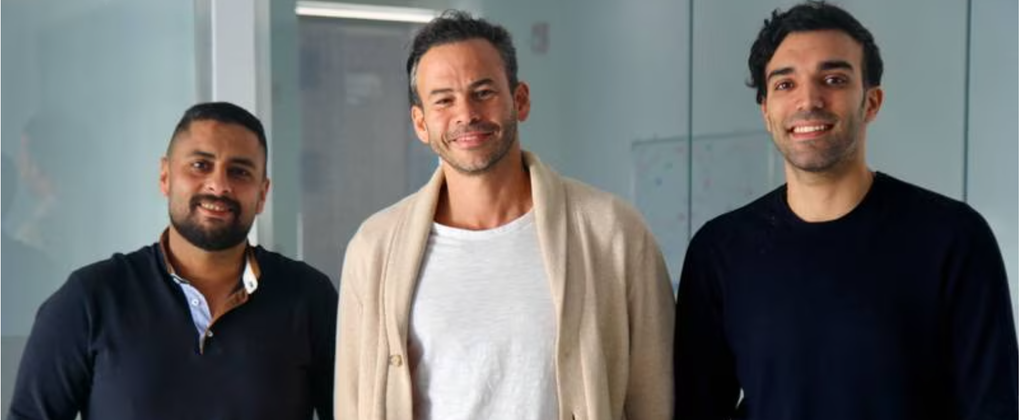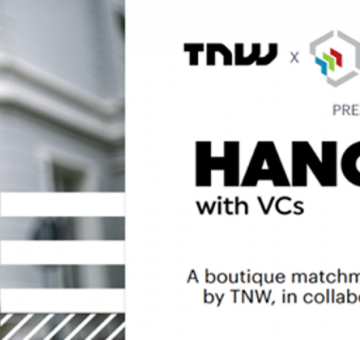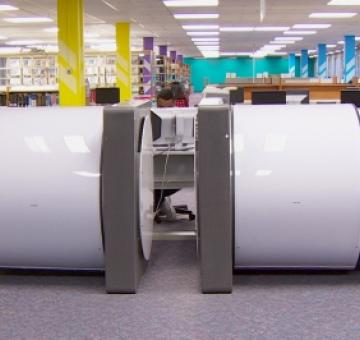Former Beltone executives launch Egyptian FinTech start-up Invia

It is either the worst or best time to launch a start-up in Egypt — depending on whom you ask — as the country’s economic crisis deepens, according to The National News website.
Yehia Ashour, the former chief executive of Beltone SME, is placing his bets on the latter.
He and his co-founders — chief operating officer Ahmed Zeinhom and chief information officer Omar Aboulmagd — have set up FinTech start-up Invia to cater to underserved small businesses that have limited access to financing.
“We want to localise the value chain and develop the companies that will make this country less dependent on imports,” Mr Ashour told The National.
“With the economic conditions in Egypt, specifically, the solution we need is to make the small businesses bigger, and especially the small manufacturing businesses.”
The economic fallout of the Russia-Ukraine war has left Egypt with soaring inflation, a higher import bill, declining foreign currency reserves and a depreciating pound.
At the same time, global macroeconomic challenges have placed a strain on start-up funding and deal levels worldwide.
Funding for start-ups in the Middle East and North Africa remained relatively flat in 2022, recording a total of $3.1 billion compared to $2.9 billion in 2021, according to data platform Magnitt’s Emerging Venture Markets Report released this month. The number of deals declined by 8 per cent, from 679 to 627.
Egyptian start-ups raised $517 million last year, compared to $501 million in 2021. Egypt led the Mena region with 160 deals, but that is still a 3 per cent decline from 2021.
However, FinTech captured 29 per cent of funding in Mena, more than the transport and logistics and e-commerce sectors combined.
Invia’s founders all have a finance background and held senior roles at Beltone SME, a subsidiary of investment bank Beltone Financial that was set up in April 2020 to offer revenue-based financing for small and medium enterprises.
Established in 2002, Beltone offers a variety of financial services in Egypt and the Mena region.
Abu Dhabi-based investment company Chimera acquired a majority stake in the Egypt-listed company in August.
While Mr Ashour was Beltone SME’s co-founder and chief executive, Mr Zeinhom was its chief investment officer and Mr Aboulmagd was its vice president of investment.
They left Beltone SME last month to embark on a similar mission, also offering revenue-based financing, meaning investors agree to provide capital in exchange for a certain percentage of revenue. But Invia is focusing on small businesses that often struggle to access funds.
“Banks are always interested in very sustainable, very predictable companies that are very stable in their cash flows,” Mr Ashour said.
“The small businesses are always in the grey area. They’re too big for microfinance, yet they’re too small for banks and equity investors.”
The Central Bank of Egypt has made financing micro, small and medium-sized enterprises, or MSMEs, a priority since 2016, when it issued a directive obligating banks to allocate 20 per cent of their credit portfolio towards such entities within four years. In 2021, the central bank increased that requirement to 25 per cent.
Invia is hoping to attract the financial institutions and banks that have the SME mandate by helping businesses reach the “investable” level.
“We’re not looking to compete with banks. We’re looking to complement banks and help these small businesses grow, so that banks are their next financing partner,” Mr Ashour said.
Invia is currently raising a pre-seed round, which is likely to be disclosed in the next couple of months.
It is dealing with three difficult variables at once — the global economic crunch and a declining economic situation in Egypt, as well as layoffs and spending cuts in the venture capital and start-ups space.
However, the depreciation of the Egyptian pound, which has halved in value to the dollar over the last year, may have an upside, Mr Ashour said.
“We’re looking to finance and grow the local businesses, which means we’re not dependent on dollars,” he said.
“When attracting venture capital funds and early stage investors, it’s an advantage. Because my ask is getting lower by the day.”





































































EgyptInnovate site is not responsible for the content of the comments